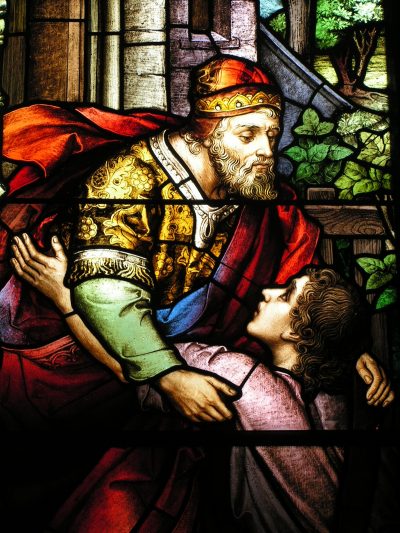 Readings:
Readings:
Zephaniah 3:14–18
Isaiah 12:2–6
Philippians 4:4–7
Luke 3:10–18
The people in today’s Gospel are “filled with expectation.” They believe John the Baptist might be the messiah they’ve been waiting for. Three times we hear their question: “What then should we do?”
The messiah’s coming requires every man and woman to choose—to “repent” or not. That’s John’s message and it will be Jesus’ too (see Luke 3:3; 5:32; 24:47).
“Repentance” translates a Greek word, metanoia (literally, “change of mind”). In the Scriptures, repentance is presented as a twofold “turning”—away from sin (see Ezekiel 3:19; 18:30) and toward God (see Sirach 17:20–21; Hosea 6:1).
This “turning” is more than attitude adjustment. It means a radical life change. It requires “good fruits as evidence of your repentance” (see Luke 3:8). That’s why John tells the crowds, soldiers, and tax collectors they must prove their faith through works of charity, honesty, and social justice.
In today’s Liturgy, each of us is being called to stand in that crowd and hear the “good news” of John’s call to repentance. We should examine our lives, asking from our hearts as they did: “What should we do?” Our repentance should spring not from our fear of coming wrath (see Luke 3:7–9) but from a joyful sense of the nearness of our saving God.
This theme resounds through today’s readings: “Rejoice! . . . The Lord is near. Have no anxiety at all,” we hear in today’s Epistle. In today’s Responsorial, we hear again the call to be joyful, unafraid at the Lord’s coming among us.
In today’s First Reading, we hear echoes of the angel’s Annunciation to Mary. The prophet’s words are very close to the angel’s greeting (compare Luke 1:28–31). Mary is the Daughter Zion—the favored one of God, told not to fear but to rejoice that the Lord is with her, “a mighty Savior.”
She is the cause of our joy. For in her draws near the Messiah, as John had promised: “One mightier than I is coming.”